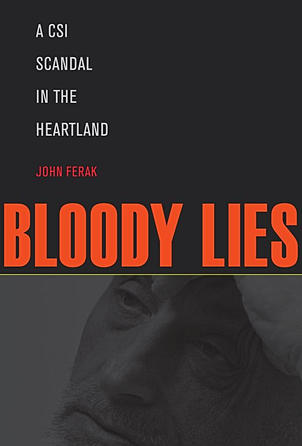Tuesday, September 29, 2015
Review of Swiss Family Robinson
I love reading the classics, particularly adventure classics, but Swiss Family Robinson didn't do much for me. There were strong passages, but for the most part, the story consisted of the family finding an animal, which they would tame and make a pet of, or of them finding another sort of animal, which they would kill and eat. The Disney version wisely added pirates. This book could have used pirates. The end.
Tuesday, September 22, 2015
My Review of Bloody Lies
Say Nebraska decided to hold
elections for something insane, like an official state crime. There would be
little debate; the top spot would go to the infamous 1958 Charles Starkweather
killing spree, which stretched from Lincoln to a few miles past the state
border into Wyoming. Inspiring both films and music (Bruce Springsteen’s Nebraska, the films Badlands and Natural Born
Killers, among others), the impact of that notorious crime has been widespread.
But if it was up to me, we’d all
take a closer look at another horrific tragedy: the murder of a happily married
couple, the Stocks, while they slept in their farmhouse in Cass County,
Nebraska. In Bloody Lies, author John
Ferak gives us the opportunity to take such a look. This crime, and most
especially the subsequent investigation, deserve as much attention, if not more,
than the one glorified by movies and music. The lessons learned are simply too
important to ignore.
Bloody Lies opens with a description of the murder. It is frank and
unflinching, but necessary for us to recognize the heinousness of the crime.
Included with this are three photos of the victims. Needless to say they are
hard to look at. Whether or not they were required is tough to say, but it
cannot be denied that the pictures allow us to see for ourselves exactly how
brutal the crime was.
From there, the book essentially
splits into two halves. The first covers the investigation of the crime through
interrogations, crime scene analysis, and so on. Ferak unreels the facts in it
a straight forward fashion, letting the story speak for itself—and what a story
it is. I was familiar with the generalities, having followed along in the Omaha-World Herald, yet I found myself enrapt.
As uncomfortable as the material can be, the quick pace of the book kept me
completely involved.
Ultimately, despite having solid
alibis and dubious motives, two individuals are held responsible. Why? Because
the police have a confession. We learn that this confession derived from an
ethically troublesome and frightening interrogation of one of the suspects.
Damn the facts, the investigators have what they want and they’re going to run
with it. Reading the excerpts of the interrogation quoted at length, it seems
clear that the suspect, Matt Livers, is all but fed a confession, the words very
nearly put in his mouth. It is difficult to resist feeling anger when Livers, a
young man that has a slight mental handicap, is instructed to “stand up” and
admit his crime. Incapable of understanding the abstract meaning of the phrase,
Livers literally stands up from his
chair.
Subscribe to:
Comments (Atom)

